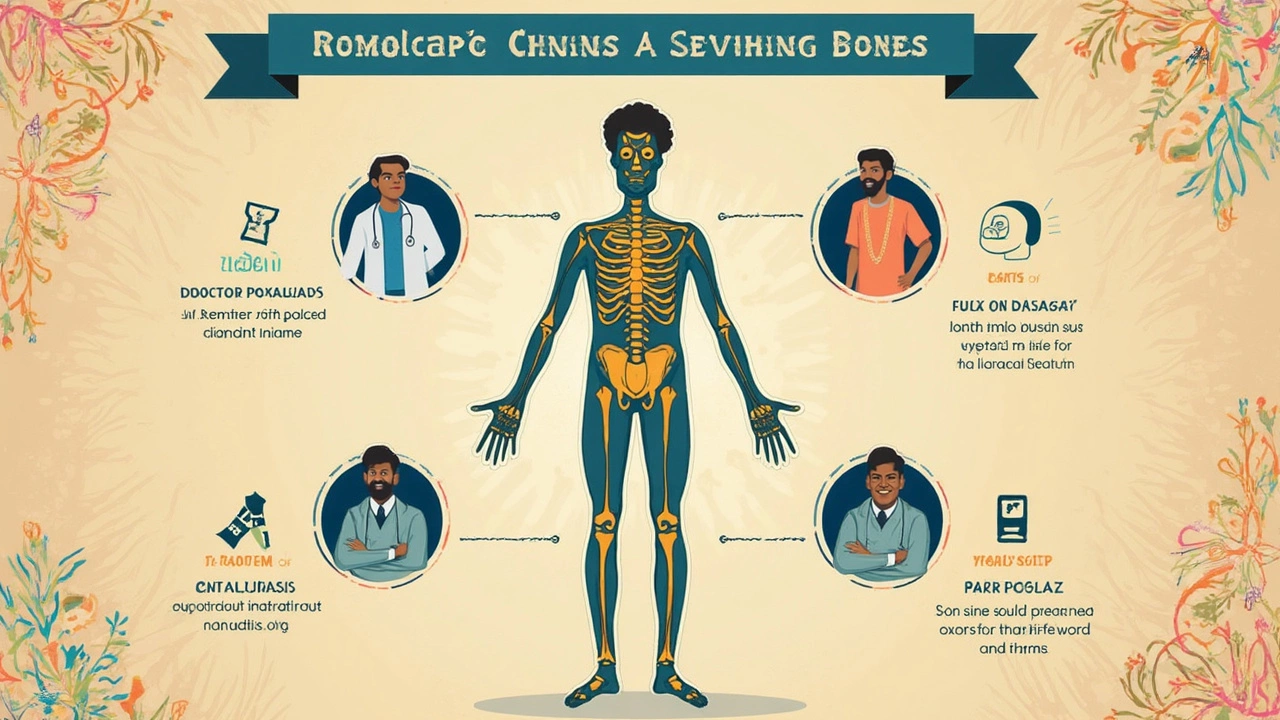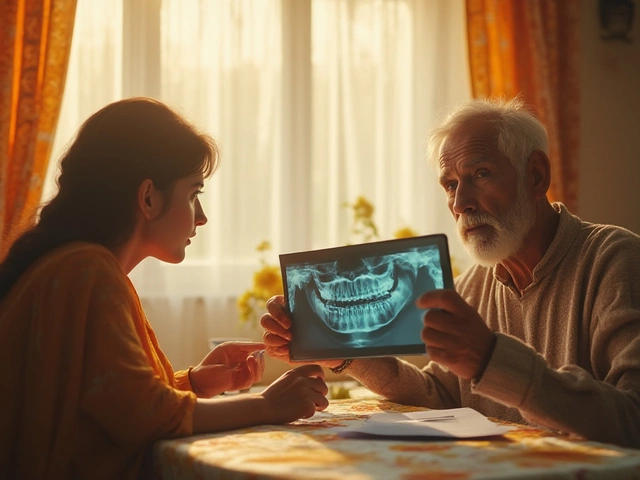
Thinking about bones might not be your daily concern, but when they're not working right, life's everyday tasks can become a struggle. So, who do you go to when it's time for a tune-up on that skeletal system? That's where orthopedic doctors come in—specialists who focus on bones, joints, ligaments, tendons, and even muscles.
Orthopedic doctors can vary greatly in their areas of expertise. Some specialize in specific parts of the body, such as the spine or the hands, while others cater to particular groups, like athletes or children. Knowing which specialist fits your needs can save you time and lead you to better results.
Let's consider what makes a great bone doctor. Beyond credentials and experience, communication is key. You want someone who listens and explains things in a way that makes sense, not just medical jargon. Patient reviews can provide insight into whether an orthopedic specialist is both skilled and personable.
- Understanding Orthopedic Specialists
- Key Qualities of Top Orthopedic Doctors
- Essential Facts About Bone Health
- Tips for Choosing Your Orthopedic Specialist
Understanding Orthopedic Specialists
Diving into the world of orthopedic care can be a bit like entering a new universe. These doctors are like the architects and engineers of your body's frame, dealing with every bit that's holding you up. But not all orthopedic specialists are the same, and knowing who's who can make all the difference in your treatment.
Types of Specialists
Firstly, you've got general orthopedic doctors who handle a variety of bone and joint issues. They’re your go-to for fractures, sprains, and basic joint pains. But when things get specific, you need someone who's honed their skills in a certain area.
Specialized Fields
- Sports Medicine Doctors: They are experts in dealing with injuries related to sports and physical activity. They can help athletes and those with active lifestyles recover and improve performance.
- Pediatric Orthopedists: These pros focus on children's skeletal issues, which differ from those in adults due to growth and development factors.
- Spine Surgeons: If your back's giving you grief, these are the folks who can handle everything from slipped discs to scoliosis.
- Hand Surgeons: Specializing in everything from carpal tunnel to complex fractures, they ensure your hands and wrists are in top form.
Some orthopedic surgeons might even subspecialize within these fields, narrowing their focus even further, like knee or hip specialists.
Credentials and Qualifications
When picking an orthopedic specialist, credentials matter. Look for doctors certified by boards recognized in the field of orthopedic care. Many have additional fellowships, which mean they’ve spent an extra period working in a specific subfield.
The internet is a good place to start checking credentials and patient reviews. Don't forget to consult with your primary care doctor; they often have a good grasp of who’s leading in the field.
Picking the right orthopedic doctor isn't just about finding someone skilled in surgery. It’s about finding someone who understands your unique situation, listens to your concerns, and works with you for the best outcome. After all, bones deserve the best care, don't you think?
Key Qualities of Top Orthopedic Doctors
Choosing the right doctor for your bone health isn't always straightforward. Here's what sets top orthopedic doctors apart from the rest.
Experience and Specialization
One major marker of a good orthopedic doctor is their experience, especially in the specific area where you're having issues. Looks for doctors who specialize in exactly what you need, whether it's spinal issues, joint replacement, or sports injuries.
Strong Communication Skills
You’ll want a doctor who’s good at explaining your condition and the treatment plan clearly. They should break down complex medical terms into everyday language. Your appointments should feel like a dialogue instead of a lecture.
Patient Reviews and Recommendations
Word of mouth can be powerful. Check out what other patients say about the doctor. Were they compassionate? Did they help patients make informed decisions? Online reviews can often give you a behind-the-scenes look.
Accessibility and Availability
Consider how easy it is to get an appointment and the wait times involved. A top orthopedic doctor often has a well-organized support staff to ensure smooth scheduling and follow-ups for ongoing orthopedic care.
State-of-the-Art Techniques and Equipment
Top-notch orthopedic doctors keep up with advancements in the medical field. Expect them to use the latest techniques and equipment, like robotic surgery or minimally invasive procedures, which can result in quicker recovery and fewer complications.
Here's a quick look at some useful data on typical outcomes with advanced techniques:
| Procedure | Average Recovery Time | Success Rate |
|---|---|---|
| Knee Replacement | 6-8 weeks | 90-95% |
| Spinal Fusion | 3 months | 80-85% |
Remember, finding the right orthopedic doctor involves more than just Googling "best doctor." It's about finding someone who meets your specific needs and whom you trust. Take your time, do your research, and you’re more likely to find an expert you’re comfortable with.

Essential Facts About Bone Health
Our bones do a lot more than just keep us upright. They're continuously changing, even after we've stopped growing. This process is called remodeling, where new bone tissue forms and old tissue breaks down. Here are some eye-opening facts about your bone health and what it takes to keep those bones strong.
Calcium and Vitamin D are Your Best Friends
You've probably heard it a million times, but there's a reason for it: Calcium and Vitamin D play crucial roles in bone strength. Calcium supports the structure of your bones, while Vitamin D improves calcium absorption in your gut. Adults typically need about 1,000 to 1,200 mg of calcium per day and at least 600 IU of Vitamin D. You can hit these targets with a mix of diet and supplements.
Physical Activity is a Bone Booster
Lifting weights? Jumping jacks? They're not just for staying in shape. Weight-bearing exercises stimulate bone formation and help preserve bone density. Activities like walking, jogging, or tennis are perfect for keeping your bones in tip-top shape.
The Impact of Lifestyle Choices
Certain lifestyle choices can negatively affect your bone health. Smoking, for example, can decrease your bone density over time. Excessive alcohol consumption does the same by interfering with Vitamin D and calcium balance.
Interesting Stats
| Activity | Bone Density Effect |
|---|---|
| Running | Increases by 10-20% |
| Smoking | Decreases by 15-30% |
These stats show just how much difference your habits can make to your bone density.
Bone Health Is Not Just for the Older Folks
Think you don't have to worry about bone health until you're older? Think again! Building strong bones in your youth lays the groundwork for better bone mass in later life, helping to stave off problems like osteoporosis.
So, next time you're skipping that workout or reaching for that extra drink, just remember your future self might thank you for making smarter choices for your bones today.
Tips for Choosing Your Orthopedic Specialist
Choosing the right orthopedic doctor can make a huge difference in your recovery and overall health. It might seem overwhelming at first, but following a few key tips can steer you toward the best choice.
Do Your Homework
Research is your best friend here. Look into the doctor's credentials, checking if they're board-certified in orthopedic care. Certification shows that they have the necessary training, skills, and experience. You might also want to verify that there are no history of malpractice claims or disciplinary actions.
Consider the Specialty
Not all orthopedic doctors are the same. Some are experts in back pain, while others might specialize in hand surgery or sports injuries. Pinpoint your needs and find a doctor who specializes in your particular issue. It improves your chances of getting effective and targeted treatment.
Experience Matters
When it comes to complex bone issues, experience counts. The more experience a doctor has with a condition or procedure, the better prepared they are to foresee and prevent complications. Ask how many patients they’ve treated with your specific condition, and how many times they’ve performed the needed procedure.
Communication Style
You want a doctor with whom you can freely communicate. During your first meeting, assess how they respond to your questions. A good orthopedic doctor should not only listen but also explain things in a way that makes you feel comfortable and informed.
Read Patient Reviews
Hearing what other patients have to say can give you a glimpse into what to expect. Look for patterns in reviews, whether they're praising or highlighting potential issues.
Logistics
Consider the practical stuff too: location, office hours, and the efficiency of the office staff. Whether they are in a larger orthopedic hospital or a private practice can affect the resources available for treatment.
Taking these steps doesn't just help you find any orthopedic specialist; it leads you to the one that's right for you and can influence how well your treatment goes. So, gear up with these tips, and make a choice that aligns with your health goals.





Rohan Talvani
I am a manufacturing expert with over 15 years of experience in streamlining production processes and enhancing operational efficiency. My work often takes me into the technical nitty-gritty of production, but I have a keen interest in writing about medicine in India—an intersection of tradition and modern practices that captivates me. I strive to incorporate innovative approaches in everything I do, whether in my professional role or as an author. My passion for writing about health topics stems from a strong belief in knowledge sharing and its potential to bring about positive changes.
view all postsWrite a comment